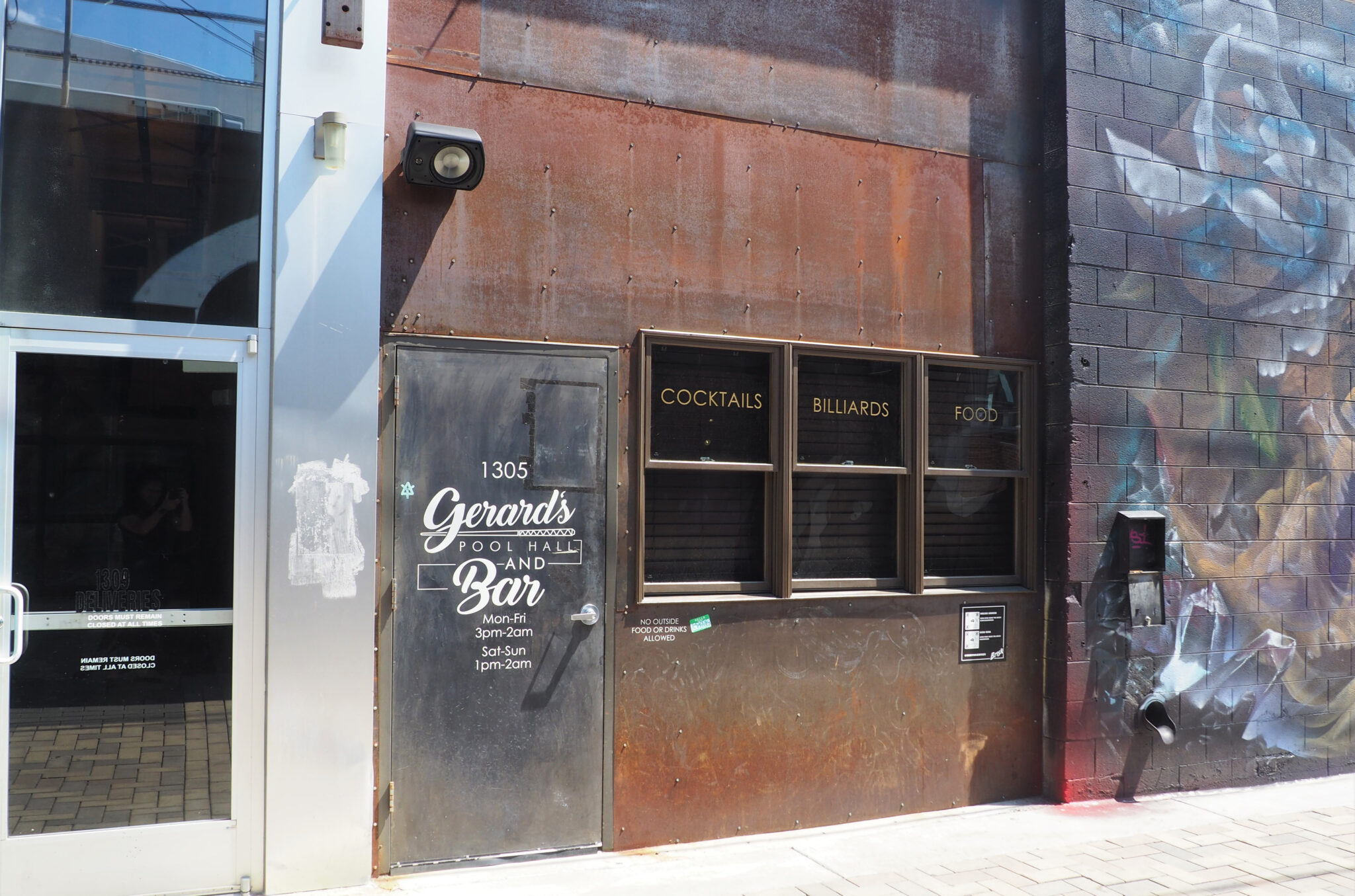The litigation between a RiNo developer and the out-of-state firm that bought his holdings in 2019 is stacking up.
Ken Wolf — an early force behind RiNo’s transformation — last week sued his Washington D.C.-based landlord Edens on behalf of a third business he controls, Gerard’s Pool Hall.
Like the previous two lawsuits, which Wolf filed in March on behalf of Sushi-Rama and Il Posto, Wolf is suing because he believes Gerard’s has the right to exercise an option to extend its lease. Edens appears to disagree.
Wolf says in the litigation that he has asked Edens to confirm that Gerard’s can extend its lease, and the company hasn’t responded. Wolf is asking the court to declare that his interpretation of the lease terms is correct.
A local executive with Edens did not respond to a request for comment.
Edens paid Wolf about $55 million in 2018 and 2019 for a number of buildings in the 2600 block of Walnut and Larimer streets, which Wolf had renovated and filled with tenants.
Wolf also has an ownership stake in a number of those businesses, most notably Denver Central Market. So, after he sold his properties to Edens, he became, in his words, the company’s largest tenant locally.
Gerard’s occupies 2,886 square feet at 1305 26th St. Its current lease, signed in early 2017, expires in May 2022, but contains an option for two additional five-year periods, according to the lawsuit.
In an interview, Wolf said the dispute — like the lawsuits for Sushi-Rama and Il Posto — revolves around the fact that the lease states that the business doesn’t have the right to extend if it has “been in default beyond any applicable cure period.”
Wolf said Edens has not defined what it means by “cure period.”
Wolf acknowledged Gerard’s has sometimes paid rent late, but said that’s not typically considered in the real estate industry to be in default beyond the cure period.
“The cure period is when they make the formal demand — pay or move out,” he said, adding this is typically done with a notice posted at the property.
Gerard’s can’t formally exercise its option to extend until October, 240 days before the expiration of the current lease term in May. But Wolf said he’s filing the lawsuit now because the court process takes time.
“Hopefully, we can get a court ruling prior to May of next year,” he said.
The lawsuits for Sushi-Rama and Il Posto, meanwhile, remain unresolved. Wolf said he felt the two sides were close to a settlement at one point, but he backed away when Edens wouldn’t agree to remove the “cure period” language from the lease.
Edens, meanwhile, has continued to purchase RiNo real estate, from sellers other than Wolf. Most recently, in May, it paid $4 million for the Joe’s Liquor Store building at 2644 Larimer St.
The litigation between a RiNo developer and the out-of-state firm that bought his holdings in 2019 is stacking up.
Ken Wolf — an early force behind RiNo’s transformation — last week sued his Washington D.C.-based landlord Edens on behalf of a third business he controls, Gerard’s Pool Hall.
Like the previous two lawsuits, which Wolf filed in March on behalf of Sushi-Rama and Il Posto, Wolf is suing because he believes Gerard’s has the right to exercise an option to extend its lease. Edens appears to disagree.
Wolf says in the litigation that he has asked Edens to confirm that Gerard’s can extend its lease, and the company hasn’t responded. Wolf is asking the court to declare that his interpretation of the lease terms is correct.
A local executive with Edens did not respond to a request for comment.
Edens paid Wolf about $55 million in 2018 and 2019 for a number of buildings in the 2600 block of Walnut and Larimer streets, which Wolf had renovated and filled with tenants.
Wolf also has an ownership stake in a number of those businesses, most notably Denver Central Market. So, after he sold his properties to Edens, he became, in his words, the company’s largest tenant locally.
Gerard’s occupies 2,886 square feet at 1305 26th St. Its current lease, signed in early 2017, expires in May 2022, but contains an option for two additional five-year periods, according to the lawsuit.
In an interview, Wolf said the dispute — like the lawsuits for Sushi-Rama and Il Posto — revolves around the fact that the lease states that the business doesn’t have the right to extend if it has “been in default beyond any applicable cure period.”
Wolf said Edens has not defined what it means by “cure period.”
Wolf acknowledged Gerard’s has sometimes paid rent late, but said that’s not typically considered in the real estate industry to be in default beyond the cure period.
“The cure period is when they make the formal demand — pay or move out,” he said, adding this is typically done with a notice posted at the property.
Gerard’s can’t formally exercise its option to extend until October, 240 days before the expiration of the current lease term in May. But Wolf said he’s filing the lawsuit now because the court process takes time.
“Hopefully, we can get a court ruling prior to May of next year,” he said.
The lawsuits for Sushi-Rama and Il Posto, meanwhile, remain unresolved. Wolf said he felt the two sides were close to a settlement at one point, but he backed away when Edens wouldn’t agree to remove the “cure period” language from the lease.
Edens, meanwhile, has continued to purchase RiNo real estate, from sellers other than Wolf. Most recently, in May, it paid $4 million for the Joe’s Liquor Store building at 2644 Larimer St.


Leave a Reply